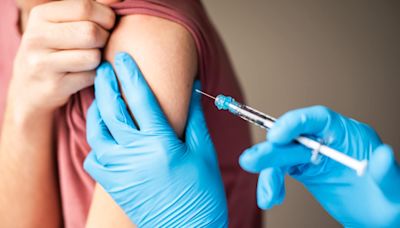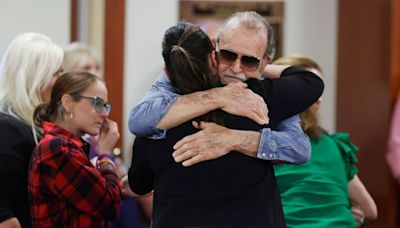Search results
Death is the irreversible cessation of all biological functions that sustain a living organism. [1] . The remains of a former organism normally begin to decompose shortly after death. [2] . Death eventually and inevitably occurs in all organisms.
2 days ago · death, the total cessation of life processes that eventually occurs in all living organisms. The state of human death has always been obscured by mystery and superstition, and its precise definition remains controversial, differing according to culture and legal systems.
Medical Definition. death. noun. ˈdeth. 1. : the irreversible cessation of all vital functions especially as indicated by permanent stoppage of the heart, respiration, and brain activity : the end of life see brain death. 2. : the cause or occasion of loss of life. drinking was the death of him.
- Decreasing Appetite
- Sleeping More
- Changing Toilet Habits
- Weakening Muscles
- Changing Vital Signs
- Dropping Body Temperature
- Changing Breathing
- Increasing Pain
- Becoming Less Social
- Experiencing Confusion
As a person approaches death, they become less active. This means their body needs less energy. They may stopeating or drinking as much as their appetite gradually reduces. A person may completely stop eating before they die. When this happens, it helps to keep their lips moistened with lip balm so that they are not uncomfortable.
In the time before a person dies, they may spend less time awake. If a person is caring for a dying loved one who is sleepy, they should make them comfortable and let them sleep. Caregivers should help the person change position in bed every 1–2 hours. Hearing is often the last sense that a person loses, so continuing to speak to them in a calm, qu...
Because a dying person is eating and drinking less, their bowel movements may reduce. They may pass solid waste less often. They may also urinate less frequently. If a person loses control of urination, speaking to the hospital about a catheter for the person may help. These changes can be distressing to witness in a loved one, but they are to be e...
In the days leading up to a person’s death, their muscles may become weak. Weak muscles mean the individual may not be able to carry out the small tasks that they were able to previously. Drinking from a cup or turning over in bed may no longer be tasks they can do. If this happens to a dying person, their loved ones should help them lift things or...
As a person approaches death, their vital signs may changein the following ways: 1. blood pressuredrops 2. breathing changes 3. heartbeat becomes fast, faint, or irregular 4. a pulse may be hard to detect
In the days before a person dies, their circulation reducesso that blood is focused on their internal organs. This means very little blood flows to their hands, feet, or legs. Reduced circulation means a dying person’s skin will be cold to the touch. Their skin may also look pale or mottled with blue and purple patches. The person who is dying may ...
A person who is dying may seem like they are having trouble breathing. Their breathing may suddenly changespeed, and they may make grunting, gurgling, or rattling noises when breathing. If someone caring for a loved one notices this, they should try not to worry. They can tryfind a position that makes breathing easier for the person, bet it on thei...
It may be difficult to come to terms with the fact that treatment cannot managea person’s pain levels as they near death. Seeing a pained expression or hearing a noise that sounds pained is never easy.
As a dying person’s energy levels reduce, they may not be able to spend as much time with other people as they once did. If a dying person starts to withdraw from interpersonal situations, their loved ones should try not to be offended. If this is the case, it is advisable to arrange visits when the person dying is up to seeing someone.
When a person is dying, they may become confused or incoherent at times. This may happen if they lose track of what is happening around them. A person caring for a loved one who is dying should make sureto keep talking with them. Explaining what is happening around them and introducing each visitor is important.
- Lana Burgess
Fascinating, insightful talks on what it means to be human and live a good life. 7 talks. Finding and bringing closure. Death is hard, and suffering from the subsequent loss is even harder. These talks focus on the journey to finding closure and reaching the end of difficult chapters in life. See all playlists on Death.
Dec 9, 2020 · The top global causes of death, in order of total number of lives lost, are associated with three broad topics: cardiovascular (ischaemic heart disease, stroke), respiratory (chronic obstructive pulmonary disease, lower respiratory infections) and neonatal conditions – which include birth asphyxia and birth trauma, neonatal sepsis and ...
What does dying feel like? A doctor explains what we know - BBC Science Focus Magazine. While we don’t know if anything happens afterwards, we do know exactly what happens in the final moments. Dr Kathryn Mannix leads you through the last few steps.







